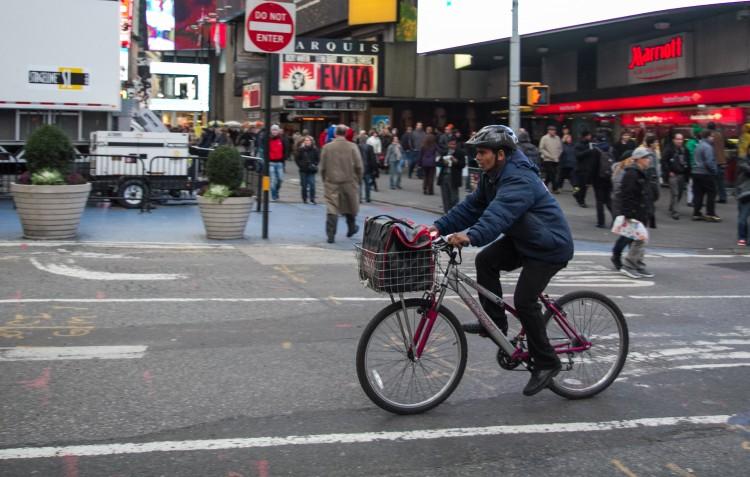NEW YORK—Crosstown bike lanes put in earlier this year may now be extended west to the Hudson River Greenway, according to preliminary plans shown to the public for the first time Thursday.
“Continuity is a big deal,” Nick Carey, project manager for the city’s Department of Transportation (DOT), told Manhattan Community Board 4’s (CB4) Transportation Planning Committee during the presentation.
Carey said it is much easier for bicyclists to use the same route, and that the lanes chosen would have direct access to the greenway, which goes along the Hudson River.
The lanes—39th, 40th, 43rd, 44th, 48th, 51st, 54th, and 55th streets—will be a combination of shared lanes (markings on the road) and bicycle lanes. They would extend lanes that were put in place earlier in the year by the transportation department that spans from First to Eighth avenues.
Community board members were largely supportive, but they and some members of the public, have said that some of the streets are unfit for bike lanes. Christine Berthet, co-chair of the committee, for instance, was opposed to the 40th Street bike lane extensions because of the “high volume” of buses from the Port Authority Bus Terminal, which has an entrance between Eighth and Ninth avenues.
The 39th and 40th Street lane extensions, unlike the other streets, which would extend further, would only continue to Ninth Avenue.
Another woman, a resident of Manhattan Plaza, said she was horrified by the possibility of extending the 43rd and 44th bike lanes, because the area is already “an absolute disaster” due to heavy traffic.







